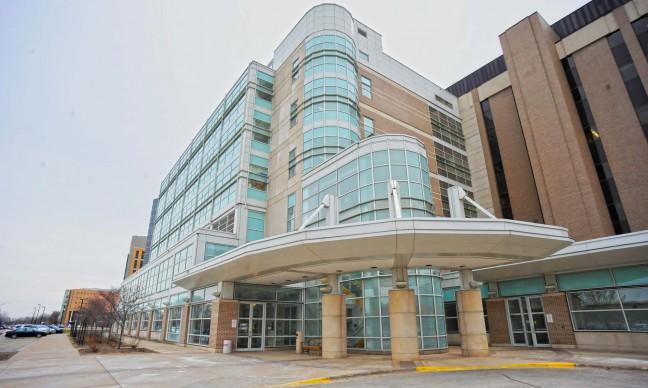The Department of Communication and Speech Disorders recently hired Rebecca Alper and Carlos Benítez-Barrera as assistant professors.
Alper and Benítez-Barrera are both working to find how environmental effects and physical conditions can affect communication skills and how to find early, effective interventions to build these skills.
Rebecca Alper joined the faculty January 1 after previously working at Temple University for over five years. Her research focuses on family-centered early language and literacy intervention for children and families who have identified communication delays or disorders in Spanish and English speaking households, Alper said. Alper also looks at those at risk of developing communication disorders because of individual or environmental factors.
Wisconsin Energy Institute hosts ‘Black Leaders in Clean Energy and Climate’ panel
“There is an association between early adversity in the birth to five [years old] period and lower language and literacy abilities,” Alper said. “However, that’s on a public health level and on an individual level, there is variability on how caregivers and children interact and what those outcomes look like across the lifespan.”
Alper said she is currently transitioning her research from Temple to UW. The research team is in its early stages — mostly working with the birth to five years population who have a variation of disorders. She has mainly been working with children who have language learning disorders, specifically Developmental Language Disorder.
DLD is a disorder that leads to difficulty understanding and using language, usually without explanatory factors, that can impact people across a lifespan, Alper said. DLD affects around seven to ten percent of the population.
Alper said she focuses her current research on DLD because it often is not diagnosed until the age of four or five because this is an important period in language development. Her team wants to find early interventions to make development interventions earlier.
“My goal is to provide more equitable and individualized intervention services that meet not just the individual needs of the child but also of the caregiver”, said Alper.
This research is not just for English speaking but Spanish speaking households as well. Benítex-Berrera is also a bilingual new assistant professor at U.W. who just completed his PhD at Vanderbilt and a Postdoctoral position at University of Texas-Dallas.
Benítez-Berrera said his research is more broad. It focuses on how the general auditory environment of a home affects childrens’ language development.
“You might be in a home that’s very close to an airport or a highway and you might have many people living in that same household,” Benítez-Berrera said. “There is a lot of noise and chaos so I want to understand whether that affects language development.”
Benítez-Berrera said he is also still in the beginning stages of his research. Currently, he works with children who have hearing loss. Cochlear implants and hearing aids can sound robotic and unnatural so children who use them are at high risk of language delays, Benítez-Berrera said.
Benítez-Berrera said that his team looks at children’s abilities to predict upcoming words, which signifies their language abilities. In households where people speak often, children are able to predict this more often and have stronger communication processing skills in general. This is called language processing efficiency, Benítez-Berrera said.
“We’re looking at Spanish speaking households, chaos and noise in those households and how that affects language development,” Benítez-Berrera said. “That connects my research to Rebecca’s. In the future, we might do something together along those lines.”
Both professors are working with the Waisman Center, a UW Research Center. The Center focuses on children based research surrounding human development and a variety of neurological disorders.
The Waisman Center allows professors to work with children and families in person, as well as work with people from other departments to look at overlap and try to collaborate in order to produce the most effective findings and interventions. UW students involved in research are also able to work with researchers in order to learn more about the ins and outs of research methods and get necessary field experience.
“We find that we can interact with different departments to research children, not just with intellectual disabilities but also hearing loss,” Benítez-Berrera said. “It’s great because you get out of your department and get to interact with the select group of researchers that are looking for similar things with children”
While both professors’ research is in the beginning stages, both hope to build on this research and grow their team, said Alper and Benítez-Berrera.
























